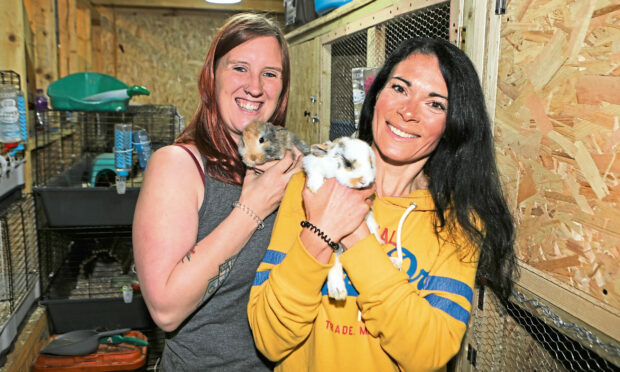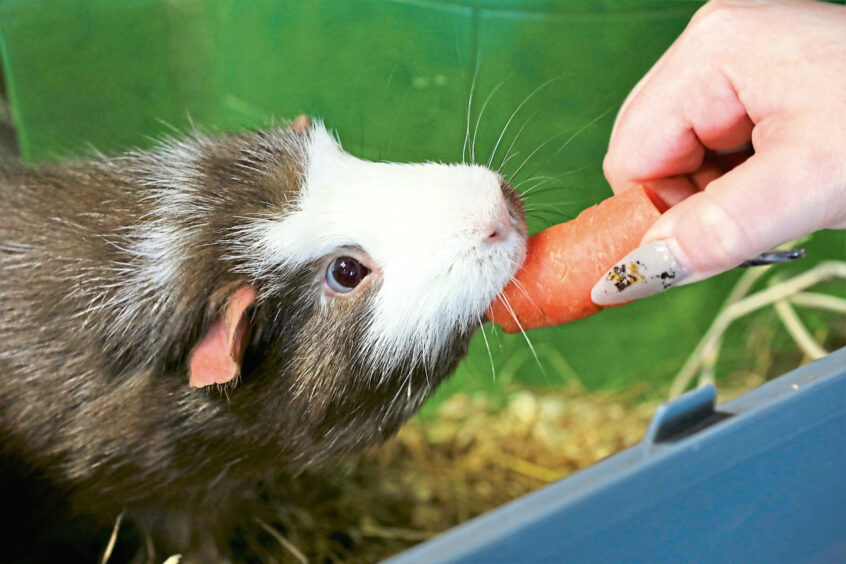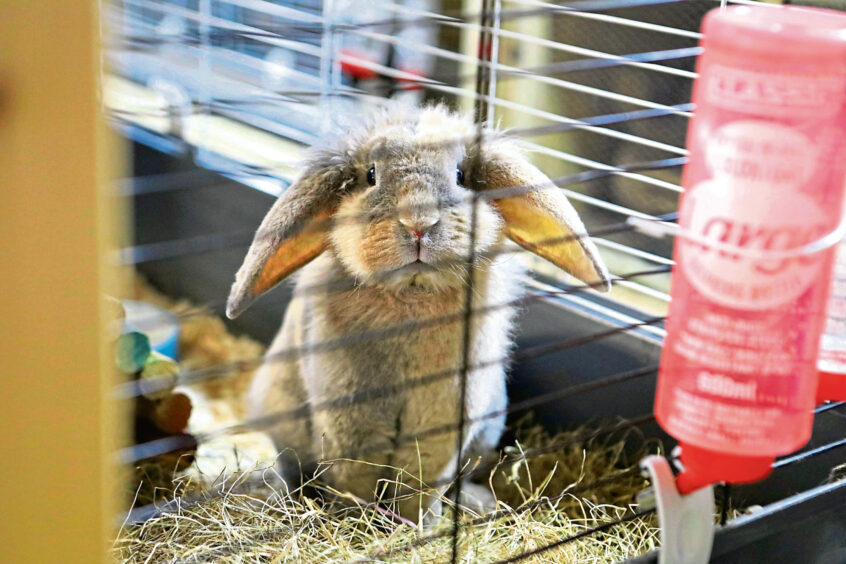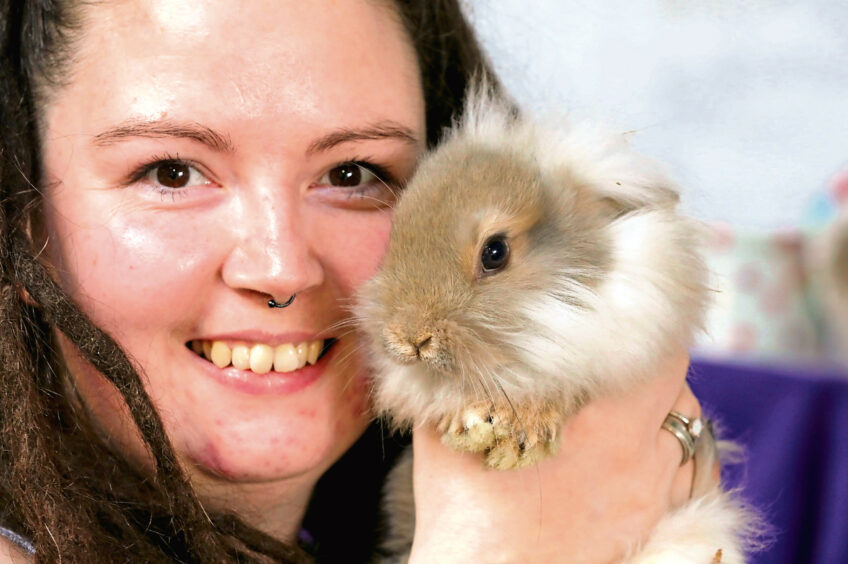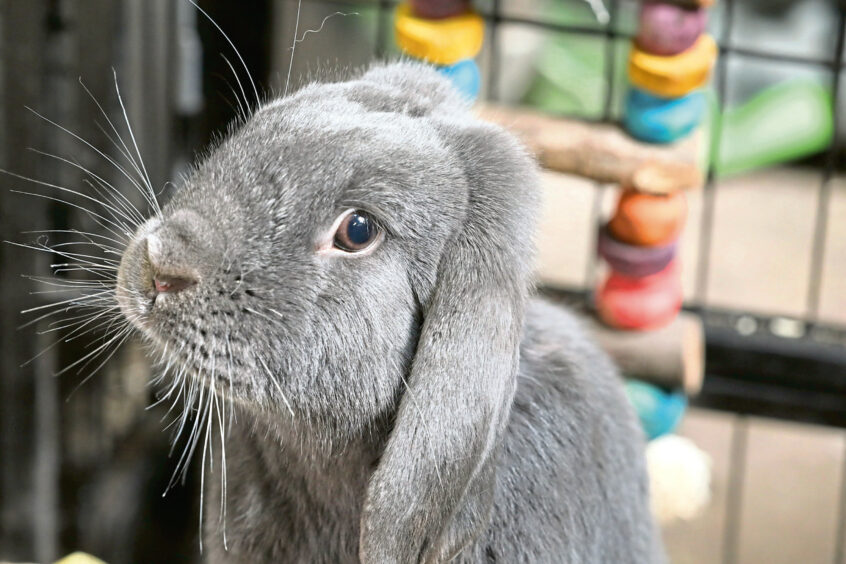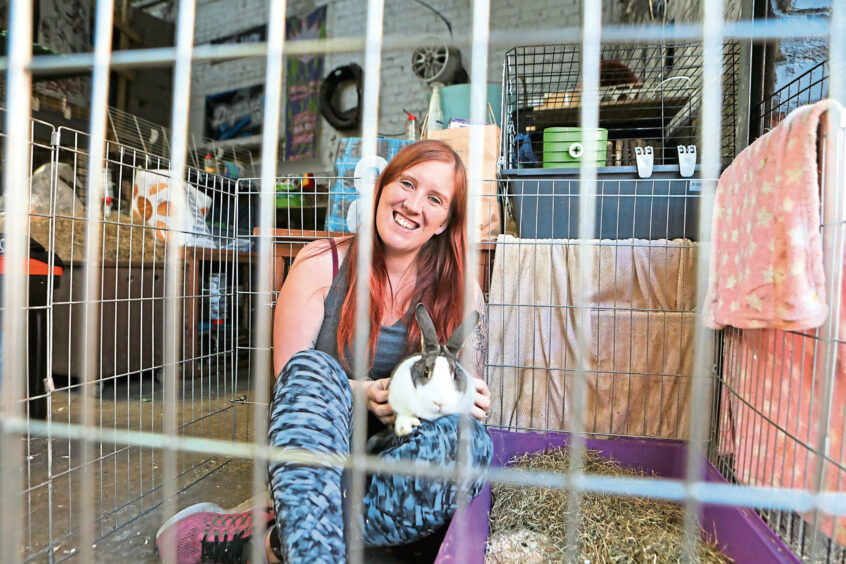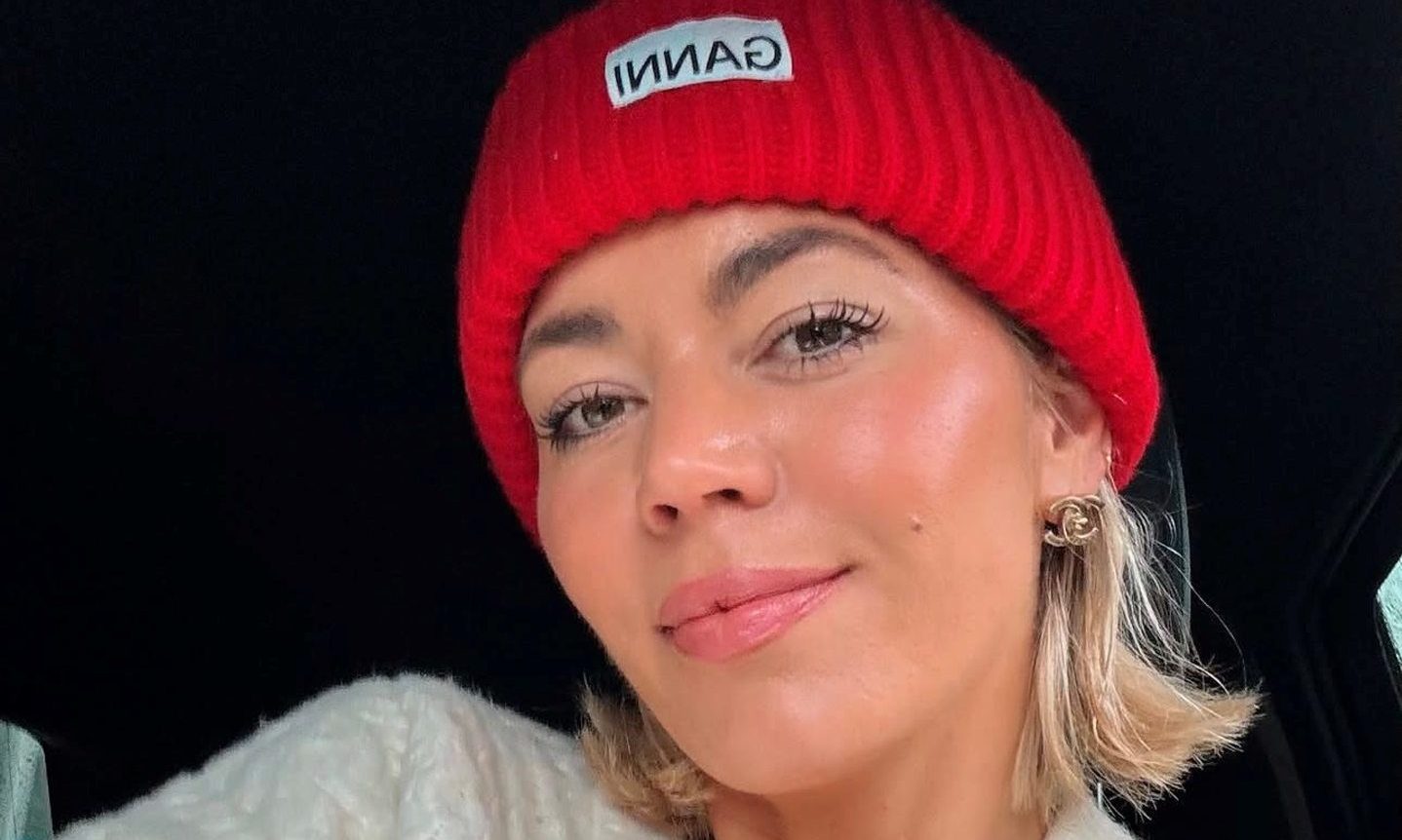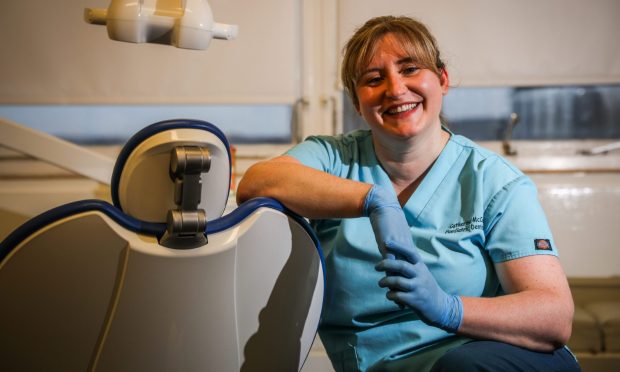The tiny baby rabbit’s heart beats wildly as he nuzzles into my neck.
He’s perfect in every way – fluffy, cuddly and heartbreakingly cute – but he has no ears.
Tragically, they were gnawed off by a rat, as were those of his brothers and sisters.
He’s among a litter of four rabbits brought in to Cavy Capers Rescue, a small, nonprofit animal centre in Dundee’s Hilltown run by volunteers.
Dementia carer Caroline Stark set up the venture in 2014, keen to educate people on the welfare needs of the animals, and to rescue, rehabilitate and rehome them.
Despite being hugely popular pets, rabbits and guinea pigs are among the most neglected.
Those that end up at Cavy Capers are the lucky ones – and right now, there are 52 in care.
Problem escalated
The problem of unwanted and abandoned animals escalated when Covid-19 hit and in 2021, the centre took in 312.
“Lots of parents who were home-schooling bought their kids something furry to entertain them,” explains Caroline.
“So many rabbits and guinea pigs were handed in here when they were only three or four months old, because the kids got bored, the novelty wore off, or the parents found it hard to fund the animal.
“It shouldn’t just be a case of buying one, leaving it in a cage and forgetting about it. They’re extremely social animals, especially rabbits, and they need friends and interaction or they can become lonely.”
Tour
I’m treated to a tour of the rescue centre, and I don’t think I’ve oohed and aahed quite so much in ages.
Rabbits of all shapes and sizes hop (and some hump!) while guinea pigs make the cutest squeaking and whistling noises.
“It’s called wheeking!” volunteer Sarah Petrie informs me, inviting me to cuddle a pretty brown and white long-haired ball of fluff.
It costs the centre a small fortune to feed, vaccinate and neuter the animals, plus it frequently has to fork out for expensive vet trips and surgery.
“Our vet bill for 2021 was £9,000,” says Caroline. “On top of that there’s heating, food and electricity. While we get some donations, we fundraise most of the costs, whether through events, raffles, competitions or whatever we come up with.”
Commitment
It’s a massive commitment, and one volunteers take on out of the goodness of their hearts. All five who work here have full-time jobs and yet they find time, taking it in shifts, to care for the animals.
“There’s so much to be done,” says Caroline. “We need to clean, groom, trim nails, respond to Facebook enquiries, take photos we can display to encourage people to adopt, and arrange vet visits.
“There’s so much misinformation out there and we want to get the message across that these animals need time, love and care. They should be part of a family – and not just a novelty that wears off.”
A lot of time is spent bonding animals. “Bonding into a happy pair can take three weeks”, says Caroline.
And like humans, not all rabbits get on. They’re discerning creatures with individual personalities.
“Kale’s the way to their hearts,” says Caroline, bursting open a huge bag of leaves and feeding it to an enthusiastic long-eared rabbit. “They eat all kinds of veg, fruit, hay and pellets.”
Bombarded
While I’m fawning over a pair of crested guinea pigs, Caroline’s phone pings relentlessly. “We’re bombarded with messages from people asking if we can rehome animals,” she explains.
“Sometimes we’ll have a message saying, ‘I’m leaving the country tomorrow; can you take my rabbit?’, or ‘my son’s bored of his guinea pig and we don’t have time to look after it’.
“We don’t like taking more on when we don’t have the time or space – unless it’s an emergency. If an animal’s life is at risk then of course we’ll do all we can to help.”
Harrowing tale
Caroline then tells me the harrowing story of how the litter of four baby rabbits were attacked by rats.
They were being kept in an outdoor hutch when the hungry rodents showed up and, in her words, “ate their ears off”.
“Two needed to be put to sleep because their quality of life would’ve been so poor,” she says.
I also meet Henry, a rabbit with a head tilt that makes him look a wee bit drunk. Poor old Henry hasn’t been at the booze – it’s the side effects of a brain-eating parasite. A dose of worming treatment helped put him right, but he’ll always have a wee wobble, and he’ll never be rehomed.
Another bunny who won’t be rehomed is an Angora with a heart condition. “Her partner is an old man. I wouldn’t put them through the stress,” says Caroline.
Locked in!
On June 4, Caroline will be locked in a small rabbit cage for 24 hours to raise funds for the centre and to highlight the accommodation needs for rabbits.
“Too many people leave their rabbits cooped up in hutches for days on end and we want to get the message across that they need more space. We recommend a minimum of 3m by 2m and a height of 1m available at all times. This means bunnies can at out their natural rabbit behaviours, whether running, hopping, rearing and binkying (making twisting leaps).”
- Cavy Capers Rescue is running an open day on June 4 when Caroline will be locked in a rabbit cage for 24 hours. There will also be a tombola, home baking, raffles, stands and competitions. See the Facebook page for more details.
